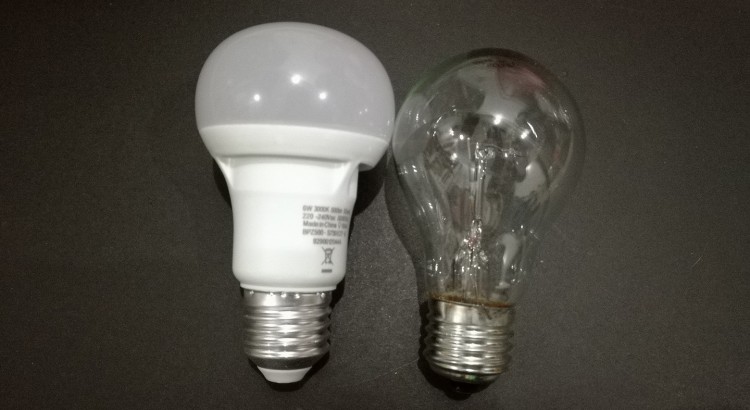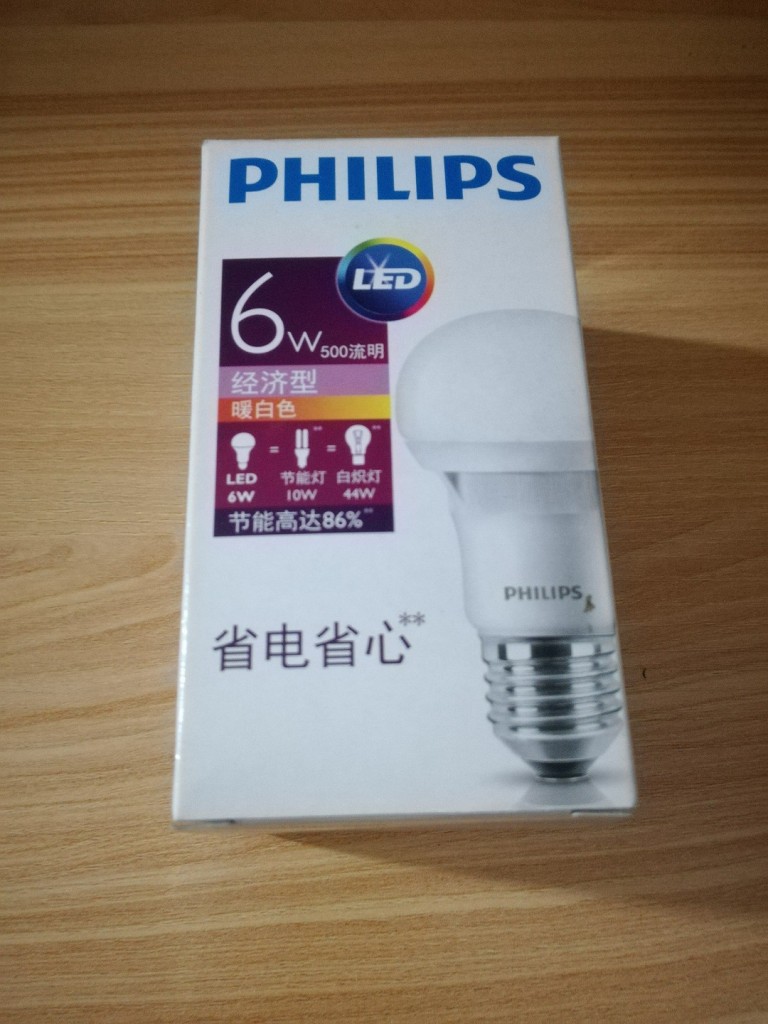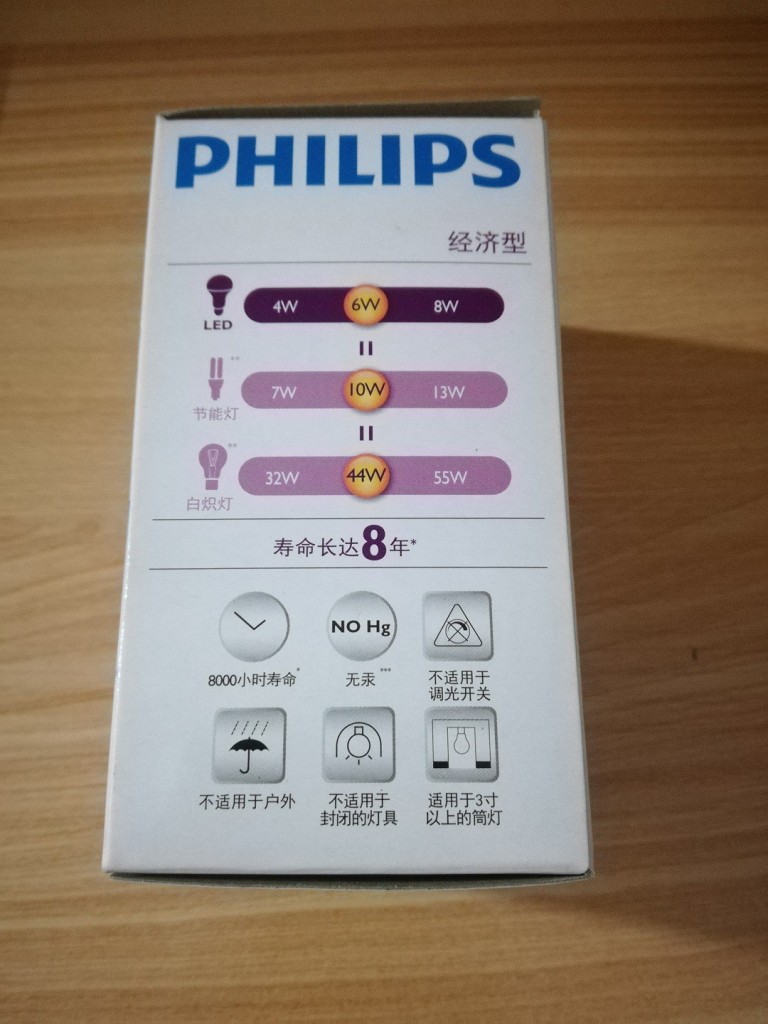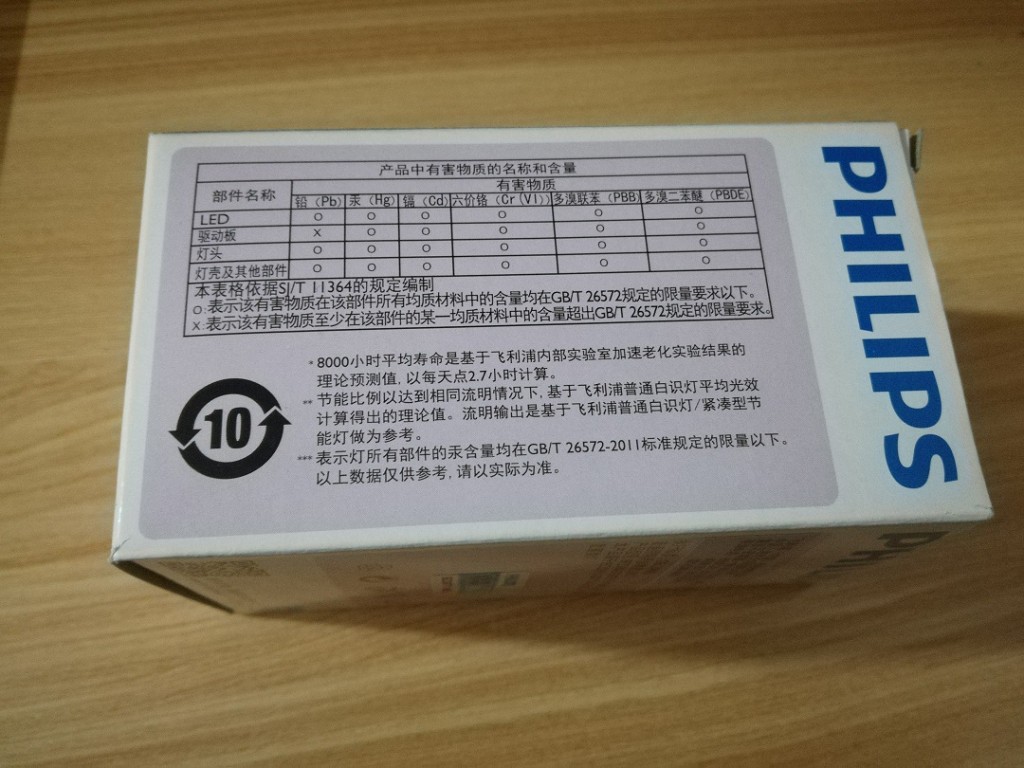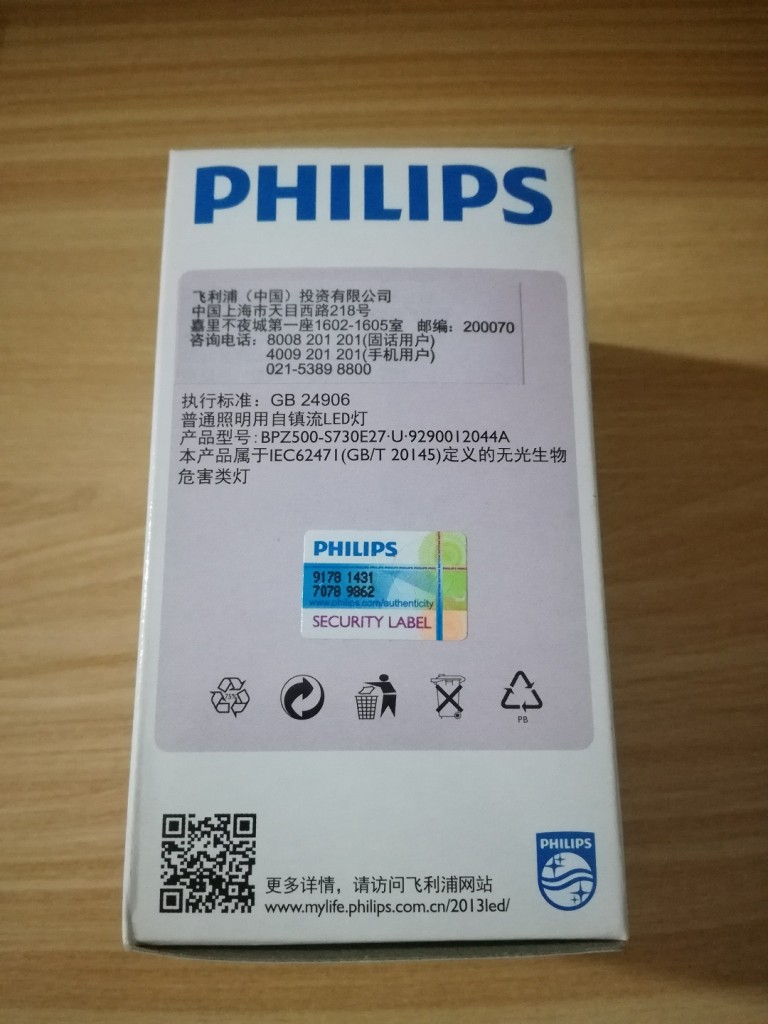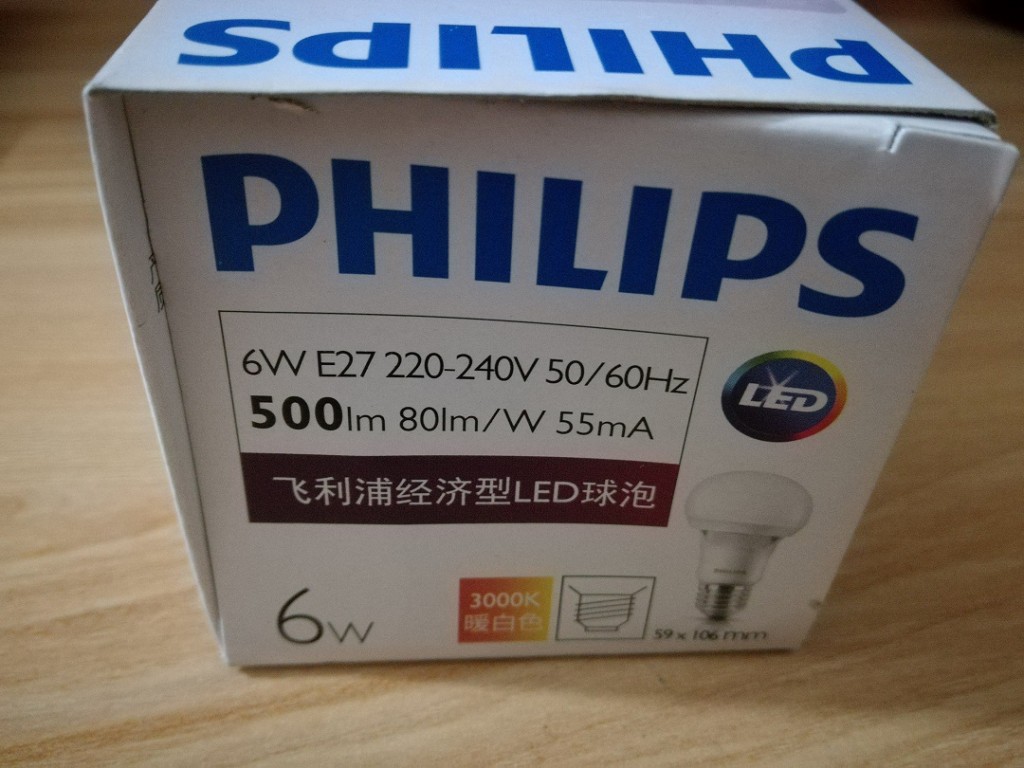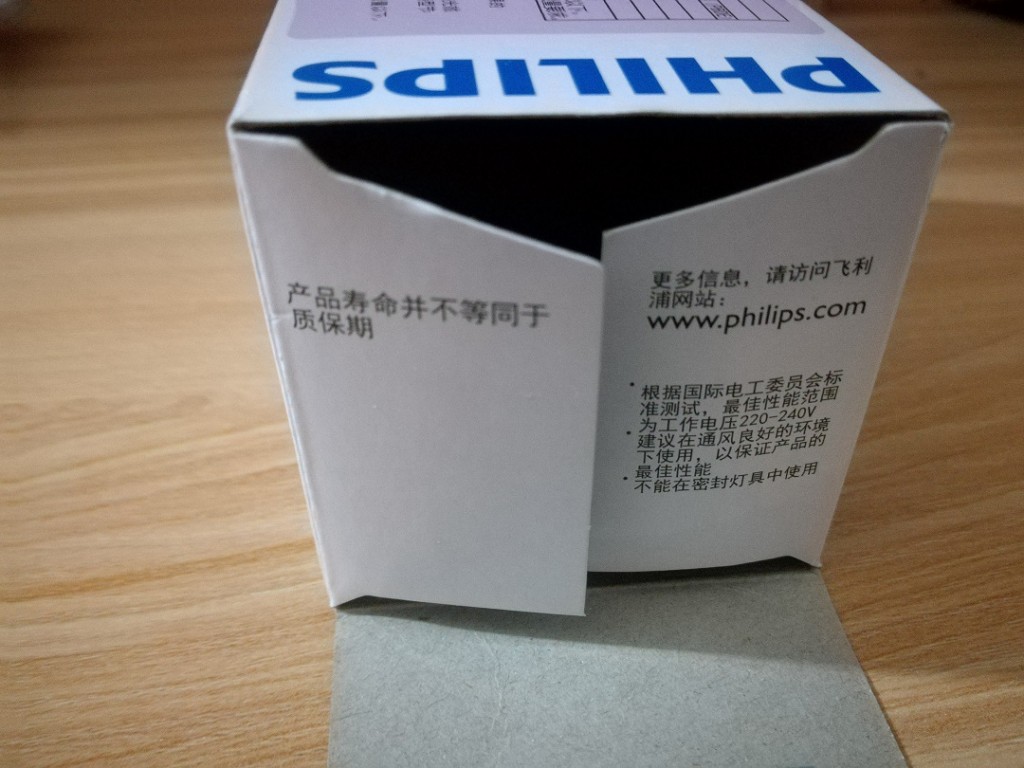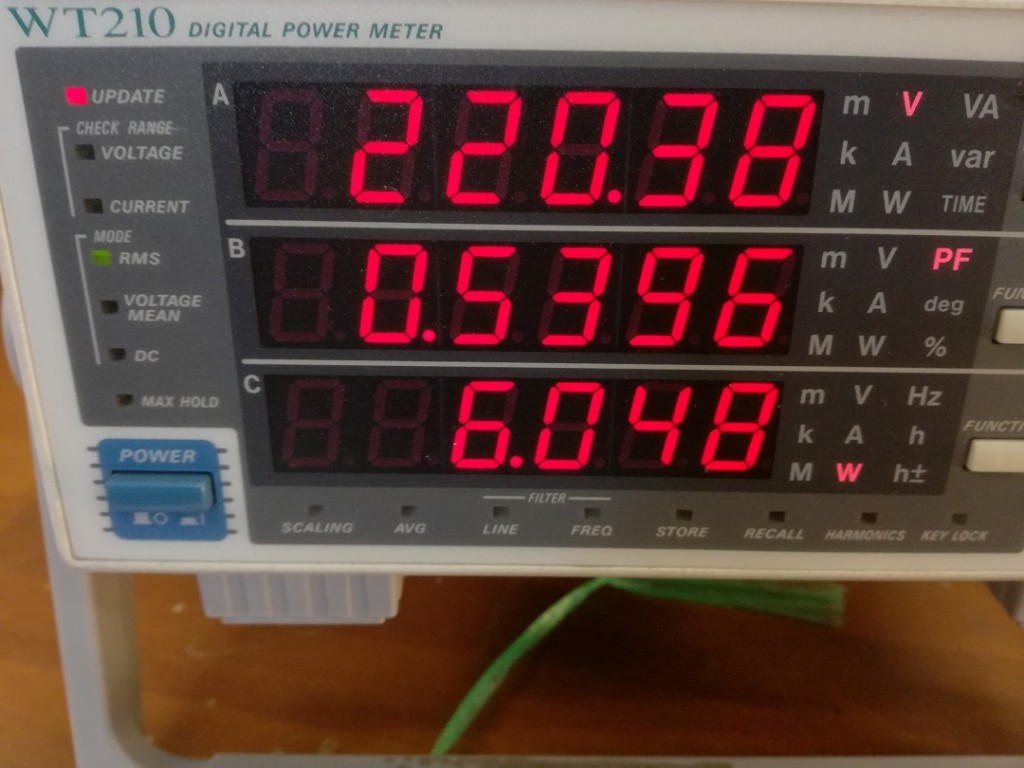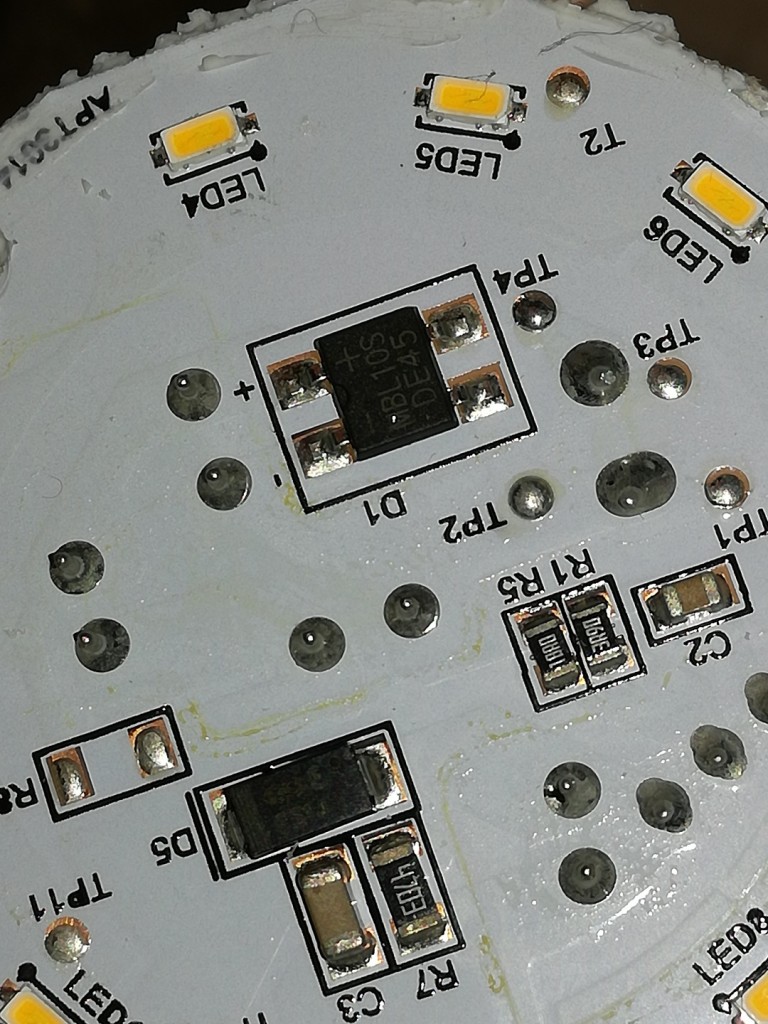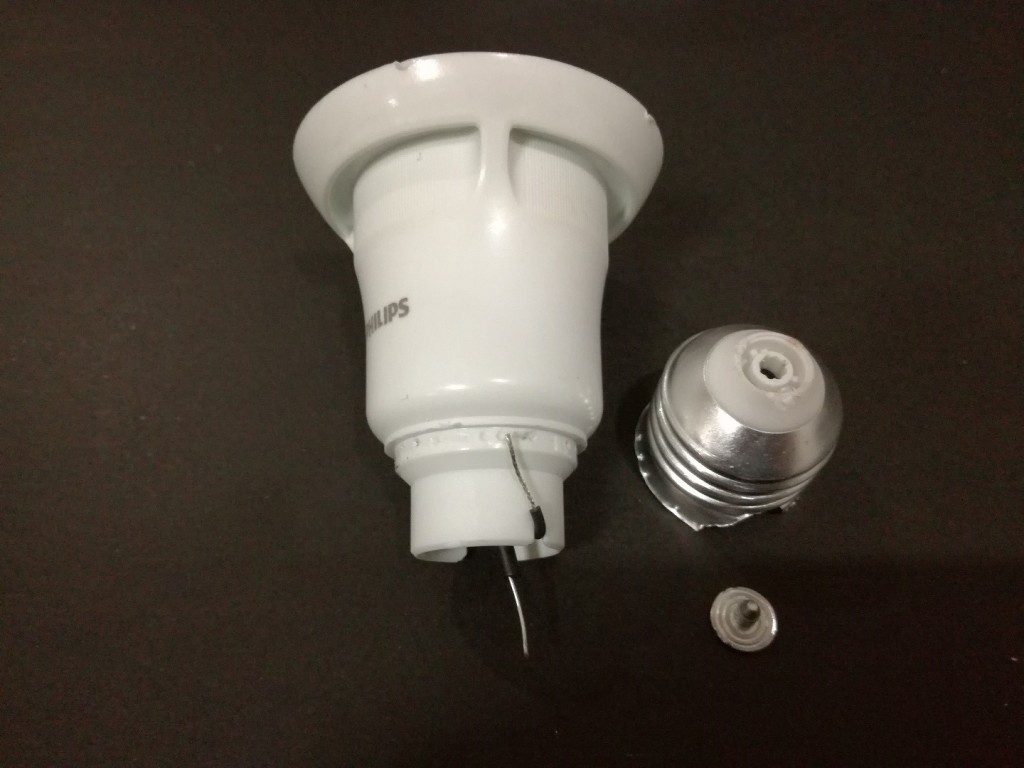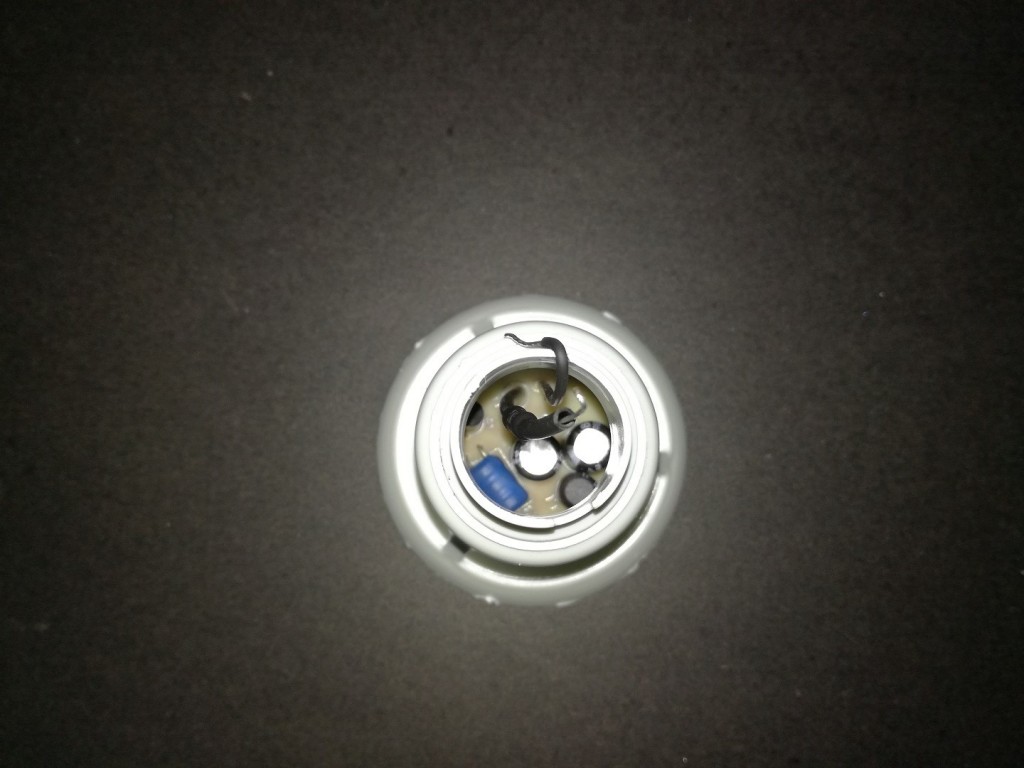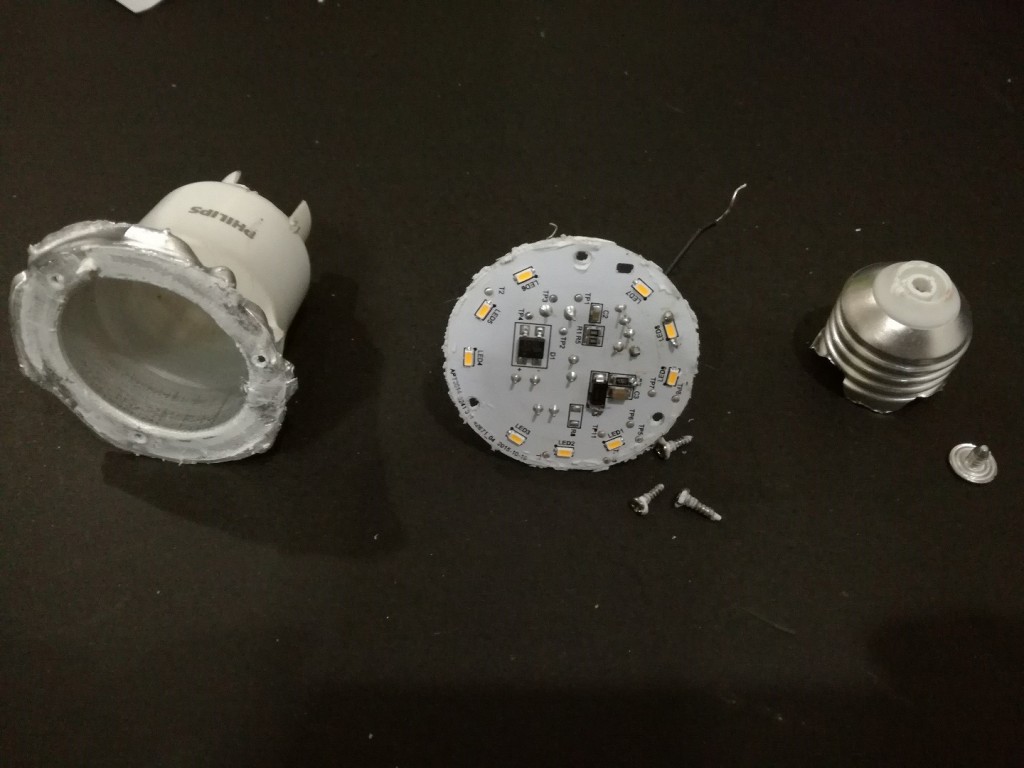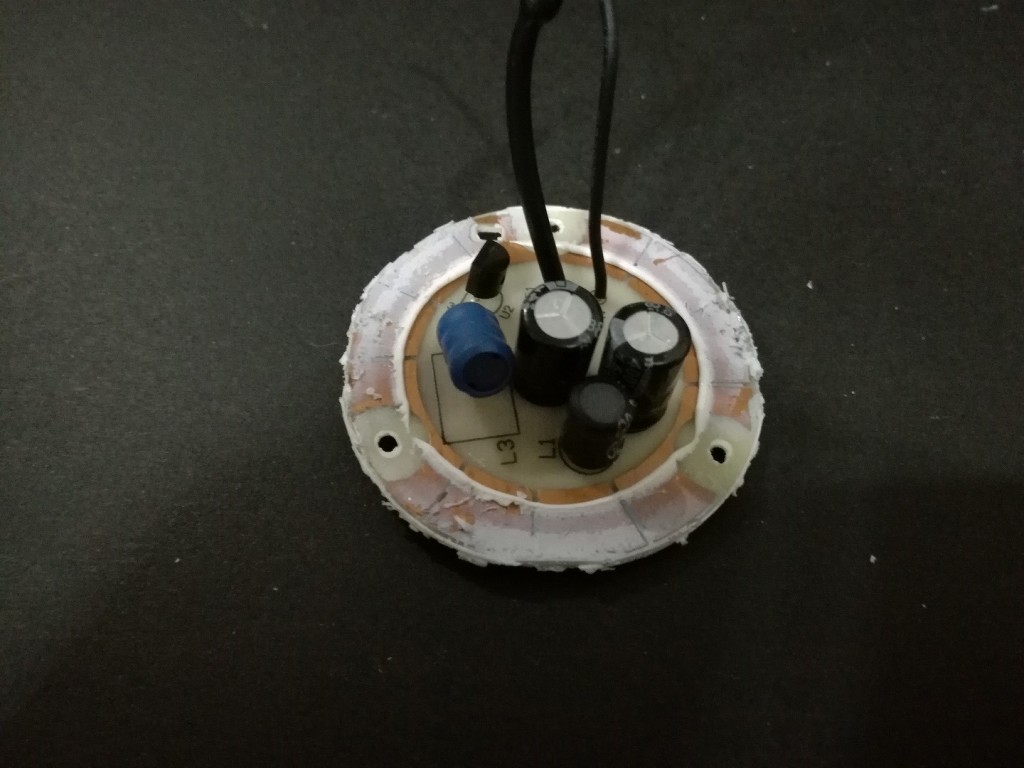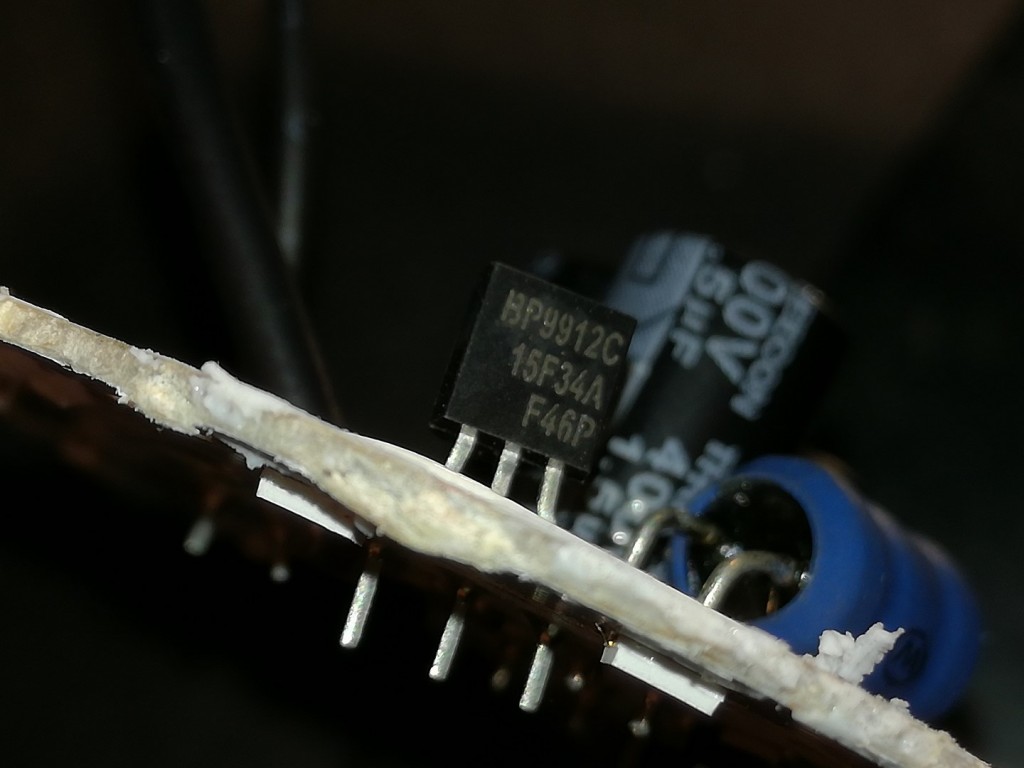Today I bought a new style Philips LED bulb in local store. It spends me 21rmb ($3.5). To most of us, the cost is high, compare to CFL and Incandescent Bulb! But when you find the same type in the Ecommerce. It spends less, it’s price about 14 rmb(about $2.0). Damn! When I look at it enclosure, this type of LED bulb may be new version. As we know the IEC/EN standard has been revised, the market changed a lot.
What is more, I do search this LED bulb, but can not find it. This new version seems do not sell in other country? Is that real?
Rating:
| Brand | Philips |
| Model | BPZ500-S730E27U-
9290012044A |
| Input Voltage | 220 -240 Vac |
| Input Current | 55 mA |
| Power | 6 W |
| Power Factor | N/A |
| CCT | 3000 k |
| Frequency | 50/60 Hz |
| Weight | 48.3 g(Incandescent: 31.0 g) |
| Lumen | 500 lm
(Equal: 10 W CFL, 44 w Incandescent) |
| Lifetime | 8000 h |
| Dimming | No |
| Standard | Rohs/GB 24906(IEC.EN 62560)/IEC 62471
(EMC?) |
| Dimension | 59 x 106 mm |
Package
Package Front Side
Package side
Package side
Package side
Package Top side
Package Inside
From the package, it is good among the LED bulb brand. most brand do not show the LED bulb data, do not tell the certificate of the product.
The Input Test
| Input Voltage(V) | Input Current(mA) | Power (W) | PF |
|---|---|---|---|
| 100 | 0.90 | 5.9 | 0.66 |
| 120 | 0.81 | 6.3 | 0.64 |
| 220 | 0.50 | 6.1 | 0.53 |
| 230 | 0.49 | 6.0 | 0.53 |
| 240 | 0.49 | 6.1 | 0.53 |
| 254 | 0.48 | 6.1 | 0.51 |
Input Test Result
It matches the rating on the package from the Input test result, in the China Market, you can not find the good quality. Many brands sell bad products.
Now I Know why do not sell in the developed country!
Check the key thing is Power Factor! Less than 0.6 if the input voltage is 220 – 240 Vac. The requirements of the Energy Star is more than 0.8, the CEC is higher than 0.9! Should China Government do more thing for the energy!
Check the requirement of the EU ERP, can not meet the standard, such as lifetime.
Thermal Test
We perform the thermal test on the LED bulb. The lamp base is up, running 2 hours, the enclosure reaches 50°C at ambient temperature 18°C. It can be bearable if you touch the housing.

Optical Test
This part is expensive, sorry. I do not test this part.
Teardown
By using a flat blade screwdriver, slowly, carefully, the PMMA diffuser tear off. When you open this, some bad smell come to you, the smell may from the glue.
When you look at the LED part, I got confused the LED board. What the hell of that.
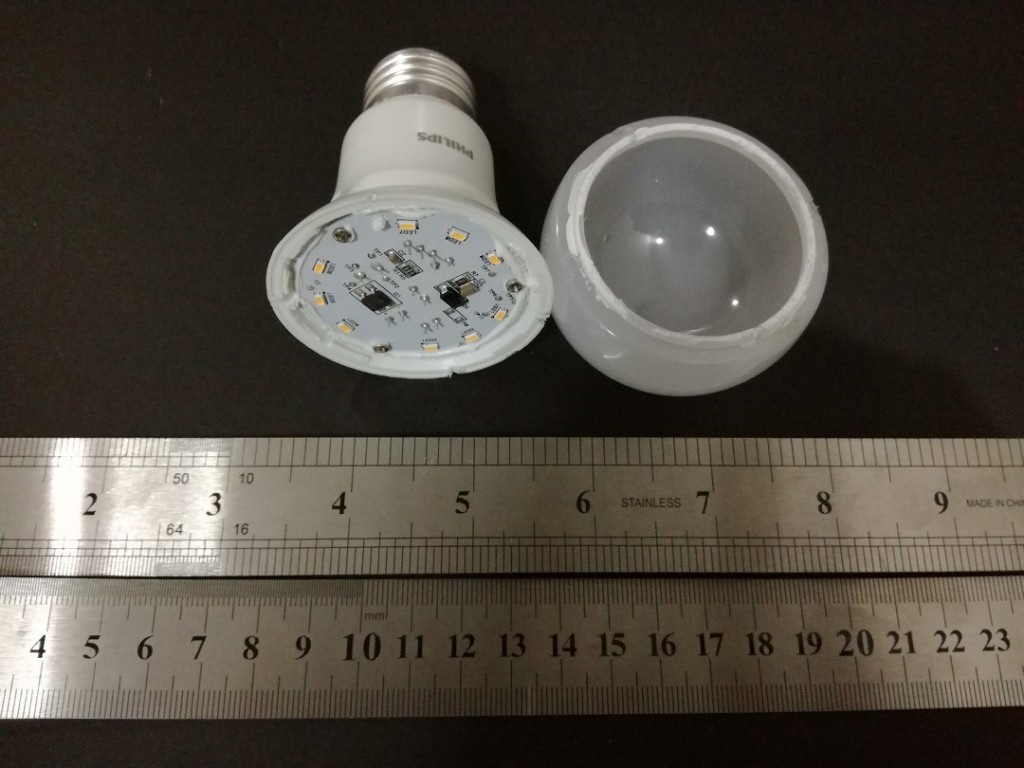
Here is a closeup of the LEDs on the PCB.
When turning the light on, you can see the some SMD components there. There are 3 resistor, 2 capacitors, 1 diode and 1 rectifier. Why? If you have tore down some LED bulbs, you find this strange. Not so many manufactures would design like this! It is integrated LED board. All the components are integrated on the PCB. In fact, the tech design is not mature. The LED board is attachted by 3 screws. I can not find any UL File Number in the LED board. The LED board looks without UL certificate.
I used the sharp-nose pliers to crush the E27 bulb’s base. And remove the button on the metal screw. Be carefully, do not hurt yourself. There has two small wires(may be 24 AWG wire) connected to the metal parts of the screw base, one to the tip of the base and one to the metal wrap.
Now the LED bulb stand up. You can see inductors and alimuimn capactior inside. The fuse resistor in on the L wire.
After spending 5 – 10 mins, finally I toke the LED board off. There are lots of glue between the LED board and metal part of housing. As you can see the metal shape in below picture. Now there are 3 bulges outside the housing.
Here is the rectifier. The number is MBL10SDE45, there are 2 capactiors, a inductors and 1 triode. You can find the LED PCB is single-sided copper-clad laminate, molded circuit board.
The triode view. Number is BP9912C 15F34A F46P from Bright Power Semiconductor.
This bulb circuit is similar with the typical application circuit. Here is Typical application circuit for BP9912C.

Reference
